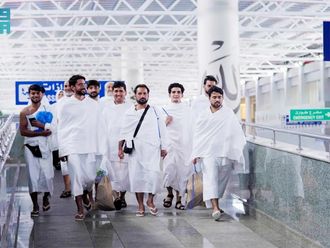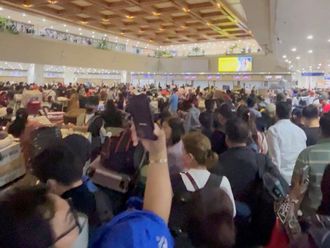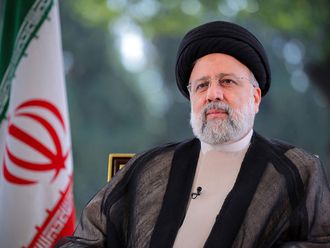London: South Yemen activists have responded differently to the government’s repeated calls to join the national dialogue. The stalled talks are set to resume on March 18 in the Yemeni capital.
In an attempt to woo southerners, the government has pledged that the conference will see all options put on the table, including separation.
However, the bulk of the southern activists who spearhead the almost daily pro-separation rallies in the south have put down three conditions for joining any talks with the government.
They stipulated that talks should be based on two states, the south and north, should be held in a neutral country and under the sponsorship of the international community. The government responded by saying that pro-autonomy leaders should come to the talks with no preconditions. The former vice president Ali Salem Al Beidh and Hassan Baoum, who lead the hardline wings of the South Movement, rejected any calls for talks until the government agrees to their demands.
The Southern Movement is an umbrella term for the southern factions that have sparked or supported the protests in the south since 2007.
Ayman Mohammad Nasser, a member of the Supreme Council of Peaceful South Movement, led by Baoum, told Gulf News the faction would not take part in national dialogue.
“The UN Security Council Resolution 2014 on Yemen and the GCC-brokered peace deal were initiated to settle a conflict in Sana’a and mentioned nothing about the Southern cause” he said.
Ayman Mohammad, who is also editor of a local newspaper in Aden, said the southerners who agreed to join the dialogue are representing themselves.
“They are representing themselves and their factions and cannot talk on the behalf of the southerners. The people of the South have completely gone to the streets rejecting the dialogue and adhering to their demand of independence.”
Two other senior southern leaders have said that they would boycott the conference. Haider Al Attas, the former prime minister, and Abdul Rahman Al Jifri, the head of Sons of Yemen League, have said they are in favour of a referendum on unity in the south. The former South Yemen president Ali Nasser Mohammad has not announced a clear stance.
Backing dialogue
The supporters of joining the national dialogue are saying that the uprising in Yemen that ousted the former president in 2011 has brought about changes in the country.
Among the top Southern Movement leaders who support the dialogue are Mohammad Ali Ahmad, Abdullah Al Asnaj, who still lives in exile, and Lutfi Shatara.
Lutfi Shatara, a former exiled leader, told Gulf News he and other southern leaders have decided to participate in the national dialogue, believing there is no way to solve the issue except by talking.
“This dialogue is unprecedentedly sponsored by the regional and international dialogue. I think as far as this dialogue will be held without preconditions and have no limitations, there is no excuse for the southerners to join it as this is the opportunity to get their right that have been to struggling for,” he said.
Shatara said that the southerners, who will participate in the dialogue, have received solemn promises from the international sponsors that they would support any solution agreed by the southerners. This includes the revival of the former South Yemen state.
“I advise all the factions of the peaceful South Movement not to miss this opportunity that may not come back again and join the UN- sponsored dialogue. In this dialogue, we must prove to the world that we [the southerners] relinquished land and wealth have reaped injustices and neglect [from the north].”
Under the terms of the GCC–brokered initiative that ended the political crisis in 2012, the Yemen president should call all political forces in the country to a national dialogue to discuss the future of the country and draft a new constitution.
All political forces have already handed over the names of their participants in the conference.
The government has also said that it gave the southerners 50 per cent of the national dialogue’s seats.
“Who said that the government has given the southerners half of the seats?” asked Abdul Kareem Kasem, another steadfast secessionist.
“The government is trying to pull the wool over our eyes by saying that the south equally shared seats with the north. The southerners who were given the seats are members of north-originated parties and their opinion will naturally reflect their parties.”
Sanction
The UN has threatened to impose sanction on the former vice-president Ali Salim Al Beidh, if he continued to impede the transitional period in Yemen.
“Personally, I think the UN threat positively serves the south as it implicitly recognised Al Beidh as a legitimate representative of the south. It also shows that he and pro-separation factions have great leverage in the south.” said Ayman Nasser.
Protests
The pro-secession have vowed to organise a big rally in the southern port city of Aden on the eve of the national dialogue to press their demand for separation. Last month, at least 20 people were killed when police used lethal force to prevent separatist protesters from reaching the city’s parade zone.
The beginning of the protests in the south goes back to 2007 when hundreds of military pensioners arranged a rally in Aden demanding a better payment and equality with other pensioners in the north.
The protests gathered stream when other dismissed civil servants joined in. Hundreds of civilians have been killed since 2007, according to Southern Movement activists.
The former South Yemen merged with the North in 1990 to form the republic of Yemen. A civil war broke out between the two countries in 1994 and the North, aided by some defected southerners, declared victory on July 7, 1994. The southerners say that after their victory, the northerners controlled power and wealth.












